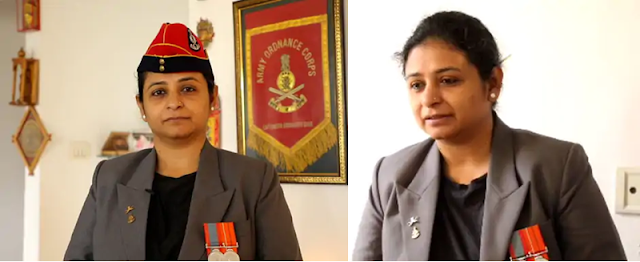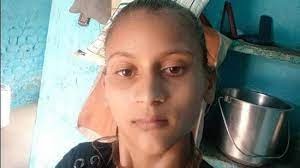Two Muslim girls became the first officers from their state to pass the UPSC, making them the first-ever Muslim officers from Gujarat and Maharashtra.
[1]
Dr. Ghazala Mohammad Hanif Ghanchi: Gujarat's First Muslim Woman IAS Officer
Dr. Ghazala Mohammad Hanif Ghanchi has made history by becoming the first Muslim woman from Gujarat to crack the prestigious UPSC examination and enter the Indian Administrative Service (IAS). Her achievement is not only a personal triumph of perseverance and dedication but also an inspiration for countless women, especially from minority communities, who aspire to serve the nation.
Early Life and Education
Dr. Ghazala hails from Ahmedabad, Gujarat. Her father, Mohammad Hanif Ghanchi, is a pharmacist at a government hospital, and her mother, Naseeba Ghanchi, is a homemaker. She completed her 10th grade in 2011 with 85% marks and her 12th grade in 2013 with 89%, consistently showing academic excellence. She secured admission to medical college through the Gujarat State Medical Entrance Exam and pursued an MBBS degree.
During her MBBS studies, she excelled every year, eventually securing 9 out of 10 gold medals in her final year, making her the university topper. This outstanding academic track record speaks volumes about her diligence and determination.
UPSC Journey and Challenges
After completing her MBBS, Dr. Ghazala decided to prepare for the UPSC Civil Services Examination. She began her preparation in 2019 but faced setbacks in 2021 and 2022 when she could not clear the preliminary exam. Undeterred, she appeared for the Gujarat Public Service Commission (GPSC) and was selected as Assistant Commissioner in the State Tax Department. This role gave her a taste of public service and further fueled her UPSC ambitions.
In 2023, she secured an All India Rank of 825 in the UPSC and was allotted the Indian Defence Estates Service (IDES) under the Ministry of Defence. However, she remained determined to improve her rank and reappeared for the examination in 2024, securing an impressive rank of 660, which qualified her for the Indian Administrative Service (IAS).
Inspiration and Family Support
Dr. Ghazala attributes her success to her family’s unwavering support, particularly her parents, who encouraged her at every stage despite societal pressures. Her journey serves as a beacon of hope for many young women, especially from conservative or minority backgrounds, who may hesitate to dream big due to cultural constraints.
"I never gave up. Every failure made me stronger. My parents’ support and my hard work brought me to this point."
– Dr. Ghazala Mohammad Hanif Ghanchi
Impact and Legacy
Dr. Ghazala’s success has sent a powerful message to society. It demonstrates that with dedication, resilience, and strong family backing, even the most ambitious goals can be achieved. Her story inspires not only Muslim girls but all aspiring civil servants across the country.
Conclusion
Dr. Ghazala Mohammad Hanif Ghanchi’s journey is a remarkable tale of hard work, persistence, and triumph over adversity. As Gujarat’s first Muslim woman IAS officer, she has paved the way for future generations and proven that no dream is too big when pursued with passion and perseverance.
YOUTUBE Video: डॉ. ग़ज़ाला मोहम्मद हनीफ घांची बनी गुजरात की पहली IAS महिला अधिकारी !| News Time Nation
[2]
Adiba Anam: Maharashtra’s First Muslim Woman IAS Officer
In April 2025, Adiba Anam achieved a historic milestone by becoming the first Muslim woman from Maharashtra to join the Indian Administrative Service (IAS), securing an impressive All India Rank (AIR) of 142 in the Union Public Service Commission (UPSC) examination. Her journey from the drought-prone district of Yavatmal to the prestigious corridors of the IAS is a testament to her resilience, determination, and unwavering commitment to public service.:contentReference[oaicite:7]{index=7}
Early Life and Background
Adiba hails from Yavatmal, a district in Maharashtra's Vidarbha region, often highlighted for its agrarian challenges and high farmer suicide rates. Born into a modest family, her father, Ashfaq Sheikh, worked as an auto-rickshaw driver. Despite financial constraints and societal pressures, especially within patriarchal communities, her parents prioritized education and stood firmly behind Adiba's aspirations. Her mother, in particular, was a pillar of strength, ensuring that societal norms did not hinder her daughter's ambitions.:contentReference[oaicite:16]{index=16}
Academic Excellence
From a young age, Adiba exhibited academic brilliance. She secured 98% in her 10th standard and 97% in the science stream during her 12th standard. Recognizing her potential, she moved to Pune to pursue a degree in Mathematics. It was during her higher secondary education that she set her sights on the civil services, inspired by interactions facilitated by her maternal uncle, who introduced her to IAS officers through his work with the Seva NGO.:contentReference[oaicite:25]{index=25}
UPSC Journey
Adiba's path to the IAS was marked by perseverance. Her first two attempts at the UPSC examination were challenging. In her second attempt, she reached the interview stage but did not make it to the final selection list. Undeterred, she viewed these setbacks as learning experiences, refining her strategy and preparation methods. Her relentless effort culminated in her third attempt, where she secured AIR 142, making history for her state and community.:contentReference[oaicite:36]{index=36}
Overcoming Societal Challenges
In many conservative communities, especially among Muslims in certain regions, women's education beyond a certain level is often discouraged. Adiba faced societal scrutiny and resistance, but her family's unwavering support ensured she remained focused on her goals. Her father's belief in her potential and his determination to provide her with the best possible opportunities played a crucial role in her success.
"Studying is not easy, especially for girls in patriarchal communities like Muslims, but my parents stood by me. I am very grateful to my mother, who was a solid support and pillar for me. The community was against girls pursuing higher studies, but my father told me not to worry about society and focus on the goal. My parents never let the societal pressure even touch me."
– Adiba Anam
Vision for the Future
With her entry into the IAS, Adiba aims to focus on sectors like education and health, particularly for the underprivileged. She believes that her position will enable her to bring about tangible changes in the lives of those who need it the most. Her journey serves as an inspiration, emphasizing that with determination and support, barriers can be broken, and dreams can be realized.:contentReference[oaicite:50]{index=50}
Conclusion
Adiba Anam's story is not just about personal achievement; it's a narrative of breaking stereotypes, challenging societal norms, and paving the way for future generations. Her success underscores the importance of education, resilience, and the transformative power of unwavering support from loved ones. As Maharashtra's first Muslim woman IAS officer, she stands as a beacon of hope and a testament to what can be achieved against all odds










Comments